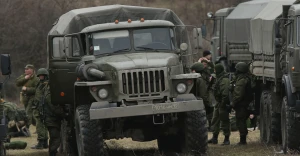
Ukrainian grain export embargo to EU should not be extended. There are no legal grounds and no arguments
Recently, the District Prosecutor's Office in Rzeszów reported the results of a large-scale investigation into the alleged use of "technical grain" from Ukraine for flour production. Three suspects have been indicted.
The first is accused of selling 111 tons of grain to a Polish company, concealing that the grain was purchased in Ukraine as "technical grain". The value of the fraud is PLN 150 thousand (UAH 1 million 300 thousand).
The second person was charged with the opposite suspicion: he bought consumer grain in Ukraine, but to reduce the amount of taxes in customs documents, it was registered as "technical". The value of the illegal activity is PLN 91 thousand.
A third person imported rapeseed and corn, indicating in the customs declaration that they were "technical", although in fact they were consumer grain and were used in this way. The value of the grain imported to Poland is PLN 6.3 million, and the cost of losses to the state is not indicated.
Poles did not eat "technical grain"
The Rzeszow Prosecutor's Office has consolidated cases of "Ukrainian grain" from all over the country, conducting 283 searches. Although the communiqué from law enforcement officials states that there will be other charges, after four months of work, prosecutors can state that the results of the large-scale investigation are not impressive, and no major abuses have been found.
It's good that Polish law enforcement agencies are detecting illegal transactions and taking imports of Ukrainian grain under particularly close scrutiny. The import case itself has had and continues to have a significant public outcry, affecting the export of Ukrainian agricultural products to the EU and other regions of the world.
Let me remind you that "technical grain" is intended for the production of biogas and cannot be consumed by humans or animals (cereals are the basis of animal feed). In April of this year, in the midst of protests against the "influx" of millions of tons of Ukrainian grain to the Polish market, local media were flooded with sensationalized stories about the use of "technical grain" for baking bread. And thus, the poisoning (!) of Poles.
"Agrounia", a new political force headed by Michal Kolodziejczak, organized blockades of border crossings with Ukraine with slogans to "stop the influx of Ukrainian grain", "stop the destruction" of Polish agriculture, etc.
The temperature of emotions at the time can be felt in the words of one of the deputies of the opposition Civic Platform, who dramatically asked the Minister of Agriculture in parliament: "We demand to know what happened to the technical grain? Was it controlled, was it examined at the border, and, most importantly, do Poles eat products made from technical grain?"
Minister Robert Telus refuted the lies about the "influx" of Ukrainian grain and the use of "technical" grain for bread baking. However, his government has unilaterally imposed an embargo on imports of all agricultural products from Ukraine, which, following negotiations with the European Commission and Ukraine, has been limited to four types of grain.
What to do with lies?
Poland used the massive import of Ukrainian grain "with a high content of pesticides" to argue in negotiations with Ukraine and the European Commission that an embargo should be imposed, as such a decision falls within the competence of Brussels. Today it has become known that no pesticides have been found, with the possible exception of one 100-ton batch, although the Rzeszow prosecutor's office is silent about the chemicals.
The conclusion is simple: the arguments for imposing an embargo on Ukrainian grain are based on lies. And what should we do with this lie, our Polish friends?
Pretend that nothing has happened and keep silent during the negotiations on the extension of the embargo after September 15? Or should we recognize that the use of such methods violates all norms of international law, not to mention the norms of good neighborly relations? And not to extend the embargo.
In July, Prime Minister Mateusz Morawiecki said that the ban would be extended even unilaterally, as Poland must take care of its own interests first and foremost. The diplomatic scandal caused by this statement ended with the Polish Foreign Ministry formulating "7 points" for relations with Ukraine. In fact, the document is a form of ultimatum with a threat to block Ukraine's integration with the European Union if Ukraine becomes dependent on restrictions on exports of its products to the EU.
Questions about the new Tusk’s ally
The campaign for parliamentary elections in Poland began on October 15. At the start of the campaign, on the eve of Polish Armed Forces Day (August 15), President Andrzej Duda essentially repeated the statement of his diplomatic office: his country will be guided by its own interests in relations with Ukraine.
Thus, the embargo must continue despite everything.
What will the opposition say about this? In the fight for the votes of rural voters, the Civic Platform made a knight's move and accepted Kolodziejczak and other Agrounia activists on its candidate lists. Sociologists predict that this could give the Civic Platform an additional 1-2% of the vote.
But an alliance with the radical populist Agrounia will not be a cakewalk. Donald Tusk, the party's leader, is aware of this and has listened carefully to Kolodziejczak's declarations: "Today we are in an emergency situation, and this project [Agrounia] is not standard. I will do everything to make this project reliable."
Tusk, as a former prime minister and, especially, as the head of the European Commission, has demonstrated a full understanding of the strategic importance for Poland and the EU of Ukraine's independence and its victory in the war with Russia. He is a true friend of Ukraine. And so I want to believe that he will make every effort to make his ally reliable for Ukraine as well.
He should not spread lies about the "influx" of Ukrainian grain and its "catastrophic consequences" for the Polish agricultural sector. He did not organize the blocking of the Ukrainian border under the slogan of stopping the import of Ukrainian "technical grain" that "poisons Poles," etc.
This "argumentation" should be a thing of the past, as the published data on the scale of Ukrainian grain imports (by the European Commission and the Polish government) have shown that the "destabilization" of the Polish agricultural market is a myth. Millions of tons of grain remained in Polish elevators because farmers and owners of agricultural enterprises thought that in the winter and spring of 2023 the price would rise, but it fell.
Will Ukraine's integration with the EU be blocked?
We have to draw conclusions from the situation surrounding the export of Ukrainian agricultural products to the EU. First and foremost, political ones, because this is a matter of policy, including Ukraine's relations with its western neighbors, whom we rightly consider our closest friends. The emergency assistance to Ukraine and Ukrainians after February 24, 2022 is a convincing proof of this.
And it will be a political crime if we squander this capital with the Poles. With the understanding that everything essentially depends on Poland, its government and opposition. The way they make the Ukrainian-Polish bed today is how we will sleep together.
The hysteria of Polish farmers, agroholdings and their representatives in politics has demonstrated the success of their chosen strategy. Today, the key theme of the election campaign - and thus the program of the future government - will be to appease the demands of this particular environment.
For them, the war in Ukraine, the needs of its frontline, and the demands of the state and society are not a subject for sympathy and assistance. On the contrary, they will use any pretext to raise an anti-Ukrainian wave and bargain for additional benefits and subsidies. And they will use all means to realize their own interests: hysteria, fakes, and outright lies. They are not bound by international law and EU internal law.
Agreeing to this approach is tantamount to understanding that Ukraine will not become a member of the EU because our neighbors will block us.
The "honeymoon period" in relations with Poland, which began after February 24, is over. For the vast majority of Ukrainians, this is a surprise and a shock. I am confident that Ukraine will pass this test as well, because we have no other choice.
We will defeat Russia, we will defeat the dirt and lies about us from our other neighbors.
And finally. On the eve of September 15, the Polish government and opposition will be answering questions not only about supporting Ukraine's integration with the EU and NATO, but above all about the admissibility of coinciding their policies with those of the Russian Federation. To the detriment of Ukraine, for which agricultural exports are one of the economic foundations of the confrontation with Moscow.
About the author. Mykola Kniazhytskyi, journalist, Member of Parliament of Ukraine
The editors do not always share the opinions expressed by the authors of the blogs.
- News














































